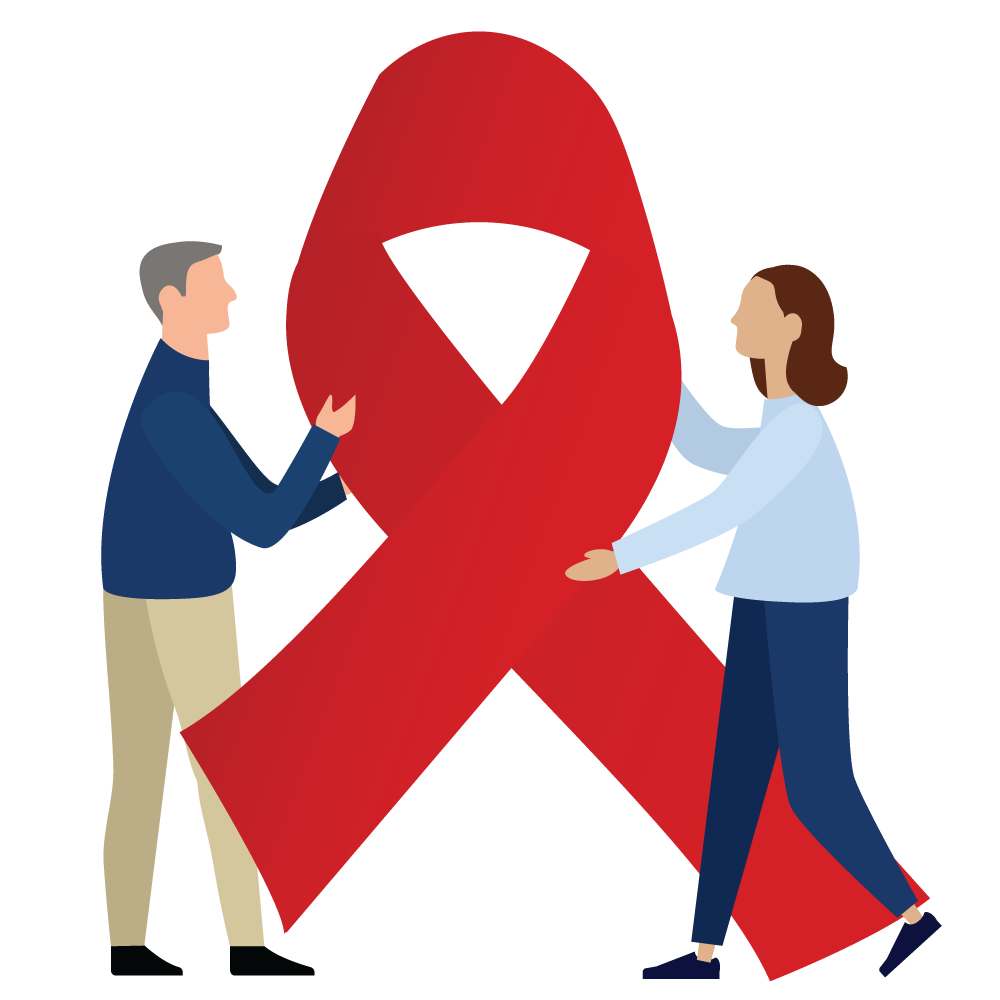We help improve the quality of life of our patients living with HIV.
Services for Patients
Living with a chronic condition can be difficult. Working with a specialty pharmacy shouldn’t be. We’re here to provide the personalized, compassionate care you need to manage your condition and your overall health. Your Alphascript team will support you throughout your entire treatment.
Services for Providers
Your days should be filled with patient care, not paperwork. Let us help you with that. We’ll become an extension of your team, proactively communicating with you and helping with prior authorizations, financial assistance for your patients and more.
About HIV/AIDS
HIV stands for human immunodeficiency virus. It is a virus that attacks the body’s cells that help fight infection. This can make a person with HIV more vulnerable to other infections and diseases.
AIDS (Acquired Immune Deficiency Virus) is the late stage of HIV infection that happens when the body’s immune system is badly damaged by the virus. With proper treatment, most people with HIV do not develop AIDS because HIV therapy stops the disease’s progression.
We’re here to help.
FAQs
Find answers to our patients’ most frequently asked questions.
Patient Resources
Learn more about HIV and its treatment from these links to educational resources and non-profit organizations.
Contact Us
Give us a call or send us a message.
Frequently Asked Questions about HIV/AIDS
What are the symptoms of HIV?
In the first (acute) stage of HIV infection which typically occurs 2-4 weeks after infection, people can experience a flu-like illness. Symptoms may include fever, rash, muscle aches and sore throat, among others. Some people do not experience in symptoms in this first stage.
In the second (clinical latency) stage, the virus multiplies at low levels and people may not experience any symptoms. Without treatment, people can stay in this stage for many years, but some move through this stage faster.
The most advanced stage of the HIV infection is AIDS. Due to their weak immune systems, people with AIDS are at high risk for other serious illnesses. Symptoms of AIDS can include swollen lymph nodes, rapid weight loss, recurring fever, extreme fatigue, diarrhea, cough and others.
With treatment, patients can protect their health and prevent transmission by maintaining an undetectable viral load.
How is HIV spread?
HIV is contracted by coming in direct contact with certain body fluids from a person who has HIV. These fluids are blood, semen, rectal fluids, vaginal fluids and breast milk. HIV can be transmitted if these fluids get into the bloodstream through a mucus membrane, open cut or sore or by direct injection.
What should I do if I think I have HIV?
If you think you might have HIV, get tested! Early detection, treatment and care can help you stay healthy.
Get in touch.
Call, email or send a message using the form below. For medical emergencies, please call 911.
For your privacy, please do not include any confidential health information when using the form.
(650) 412-4530
420 Industrial Road
San Carlos, CA 94070






